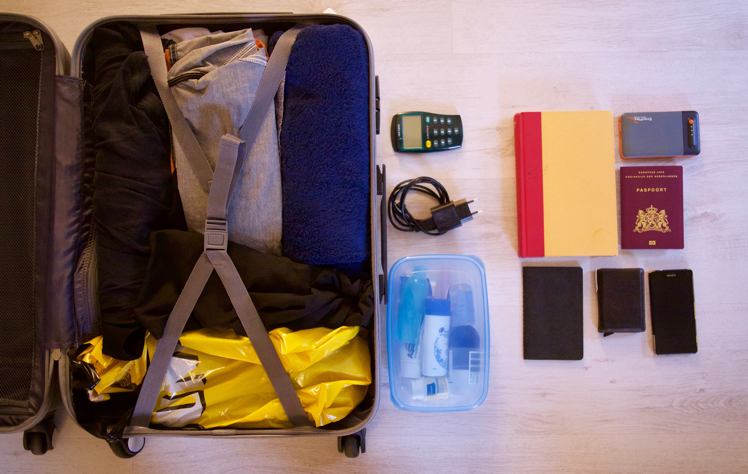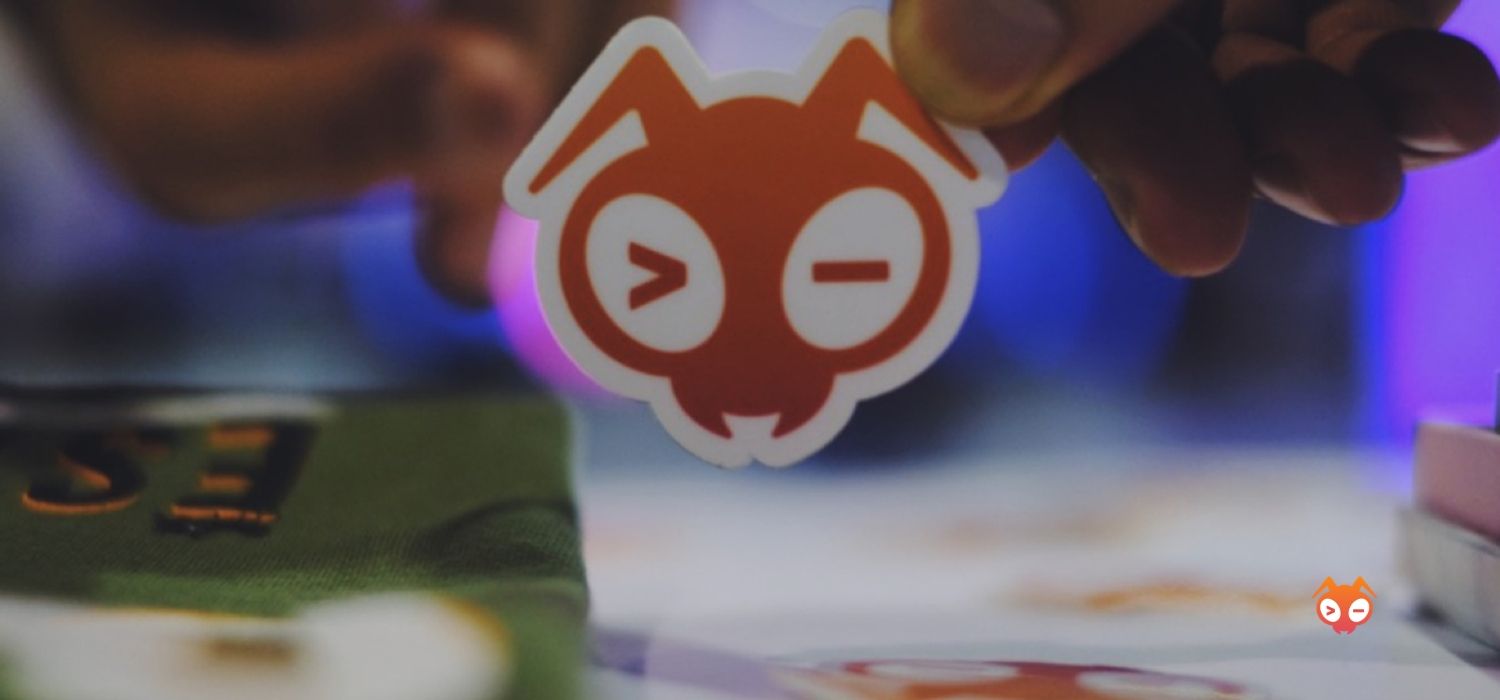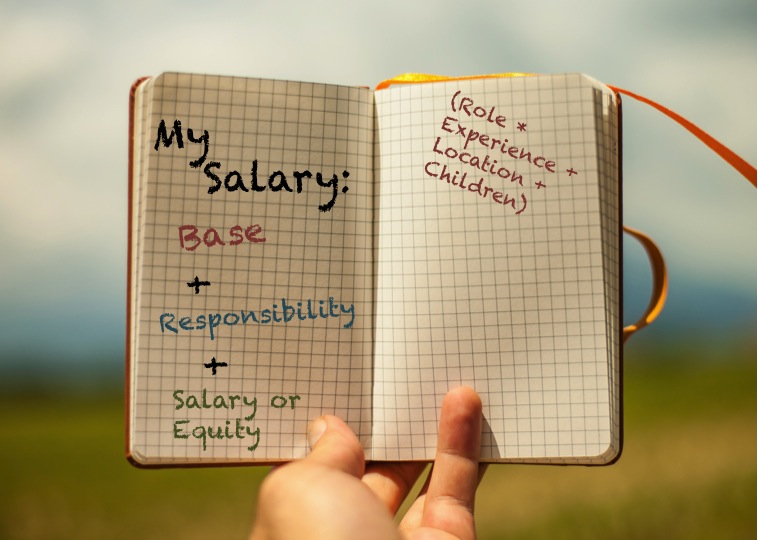10 Insights of Doing International Recruiting
by Anna Loew on May 13, 2015

Before I allow myself any TL;DR, I have to mention a very important aspect: This blogpost is, beside the topic hiring, about people, stereotypes, and things that makes you wonder and maybe smile when you have experienced recruiting in a more corporate context. I want to add that a) nobody should do recruiting without being truly interested in people and their stories and b) none of the examples are about bitching on candidates. I know for sure and it’s only fair that they struggle with my personal quirks as well.
So, International recruiting is tough, fun, and broadens your mind.
As I had never done international recruiting (outside of Germany) before, some learnings may not be rocket science for you, but for me they were. Yes, I previously got CVs from non-German-speaking people; Yes, I tried to hire in India; And yes, I was working in a multi-national corporate company before and had to face many cultural differences, but the hiring itself was never “really” international. With Giant Swarm this changed.
At Giant Swarm we started last August as a team of seven and are 15 people by now. We plan to be 30 by end of the year, so we have to face constant growth and hiring (mainly Devs and DevOps) is permanently ongoing. From the very beginning, we planned to build a remote, international, and distributed company, but as the kickoff team was located in/around Cologne this was kind of a contradiction in itself. We have a Cologne office but as we have hired the first US American, Dutch, Spanish and almost a French colleague, who all work 100% remotely. So, let’s see how we do this.
As for some background information, our hiring process has five steps:
-
General screening
-
Candidates answer some questions, as the quality of CVs differs a lot, especially in an international environment.
-
Hard facts and soft skills interview
-
Tech interview
-
A presentation (no powerpoint bingo, more real work) of a concrete task in front of the team (until now, we have always invited the candidates to Cologne for that). Candidates spend more or less half a day with us to test and prove, if they want to join Giant Swarm.
The following 10 insights mainly focus on the interview part. I’ve done more than 100 during the last month. So, what did I learn handling this process more or less smoothly in an international context (interviewing people from more than 45 countries), while not forgetting to treat people like they want to be treated?
The Organizational Stuff
-
Fight the timezones: Scheduling interviews is always a pain in the ass. Timezones make it even worse. To avoid email conversations like “I am available on every Tuesday and Wednesday during lunch in UTC time which is I think 8 hours ahead of yours? But not next week. And I have a doctor’s appointment”, YouCanBookMe helped me a lot. Let people book and reschedule their timeslot. Furthermore, you can avoid Sunday interviews, which, according to my experience, somehow is something that is quite common in other countries.
-
Have your equipment ready! Starting a Hangout or Skype 30 seconds prior to the interview will lead to delay. Ping people in advance and have a quiet room with a good microphone available. Inform your candidates that you expect the same. *“Can you hear me” “No” “Now?” *is getting on everybody’s nerves. And: Rename your Skype contacts! You’ll get crazy with the list of names written in cyrillic or other foreign languages, being a Star Wars character, funny numbers, or code sequences. If possible, do all applicant communication in one tool: I highly appreciated breezy.hr’s system. But as it’s all for the candidate’s good experience, if they don’t want, accept your fate and do as your potential new colleagues want :)
-
Try to provide as much information (e.g. photo galleries, glassdoor link, articles, company profiles etc.) in advance as possible. Candidates will have a look if you give them a friendly hint. Understand this as a service that creates a good candidate experience. It shows that you have nothing to hide and a proper preparation of the candidate also helps you in the interview!
The Interviews
- Expect the unexpected: When doing video interviews, be prepared to see everything: people wearing ties, people wearing no shirt, people having porn magazines on their desk, people doing these interviews during work and the bosses come in and you are introduced as "a friend". This list is endless, but don’t overestimate these things and be aware of your biases. One thing to highlight: Be prepared to see working environments that show you that things you take for granted, others are praying for.
- Take your time: Remote interviews take longer. If you both are not speaking in your mother tongue, you need even more time to get the information you want. And be honest to yourself: If you can’t understand the candidate (even if he has written to you in perfect English), further communication will always be hard. Stop the hiring process. Our rule: Candidates’ English has to be better or as good as our average.
- Use transparency to cope with different backgrounds: If you interview people around the globe, it is more likely that they are not used to common interview methods like behavioral and past-oriented. So, try to explain why you ask what. Always be transparent about the purpose of the interview. Be fair with people who are not used to questions like: *"Accomplishing team goals often requires us to shift from our original position or standpoint on certain issues. Tell me about a recent occasion when you have done this!"* nor the unexpected ones: "What concerns do you have about our company?" That’s also a cultural thing. Never let people loose their face in interviews. And, learn to accept new, never heard answers to questions: e.g. "Why do you want to leave?" "Too much corruption here"; "I am the biggest fan of Germany"; "I don’t want to leave, I need a second job" - all heard during the last weeks.
- Cultural differences matter! You can fight as hard as you want. Everybody sticks to stereotypes. Just have them in mind and relax. And again, be super clear in your expectations, expressing what values you follow and how people treat each other and communicate in your team. Yes, the technology stack is way easier to discuss (besides very, very different pronunciations :) but in the end, as quoted 100 times: "You hire people and not skills." (David Cancel). Think about what cultural differences you may handle and which might be too challenging in the beginning.
- Safe yourself :) When you are based in Germany, avoid weather chit chat. It gets you frustrated unless you have Siberian candidates :) Furthermore: No opinion about Bayern München. Really.
Get People on Board!
- Don’t think about bureaucracy. You want to hire the best? You want to ensure that all people have a similar living standard when paying them? Do the research on how to do it (contract, insurances, permanent employment, taxes, living standard) when you know that you want to hire this person. Otherwise: Hire a lawyer and tax accountant first.
- But nevertheless, invite them to come to the place, where most of your colleagues are! Face-to-face communication is business critical and simply awesome. :)
Certainly we will have to continue this journey and get many more learnings out of it. We will have to improve the process and (communication) challenges may occur. But all in all, the fact that we could not hire enough people locally gives a great opportunity to look “über den Tellerrand hinaus” and meet great people. And finally, rule #1 for all recruiters out there :)
“There are no facts, only interpretations.” - Friedrich Nietzsche
What’s your experience been like, whether as a recruiter or as a candidate? What have you learned? We are looking forward to your thoughts.
You May Also Like
These Related Stories

Giant Swarm is “Remote First” and I put it to the test
When Giant Swarm hired me about a year ago I was totally overjoyed at the opportunity to work remotely. It presented me with a world of opportunity th …

Becoming part of the Giant Swarm
So you have successfully managed to go through our hiring process, you’ve spoken to our People Ops team, successfully convinced us in the tech skill i …

Transparent salaries – it's not for breaking workspace taboos
After lots of deliberation, we now have ‘transparent salaries’ internally that are based on a modified version of the one Buffer has. To sum it up: No …